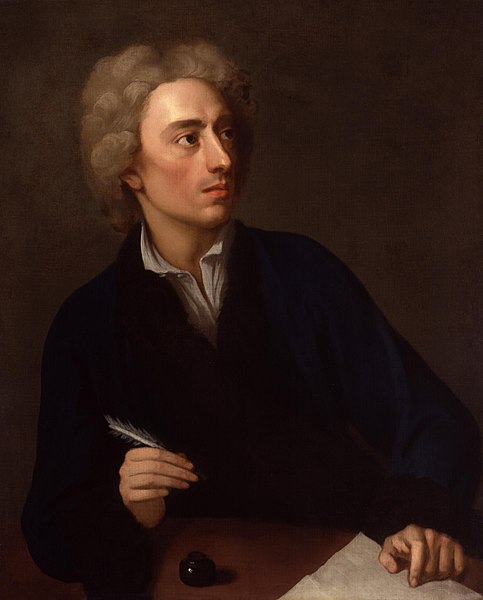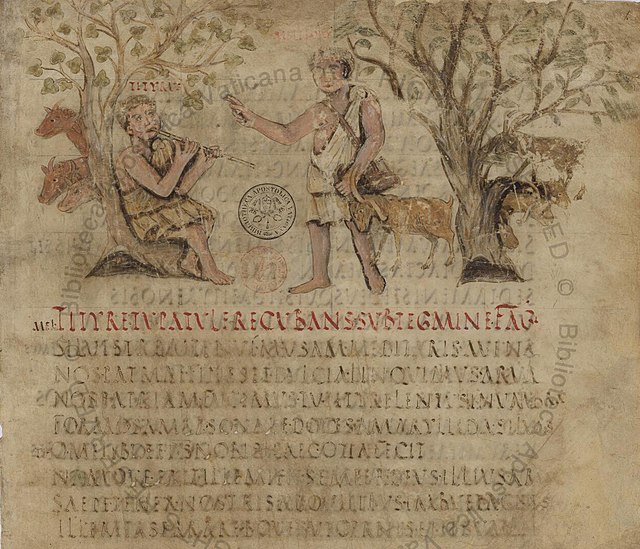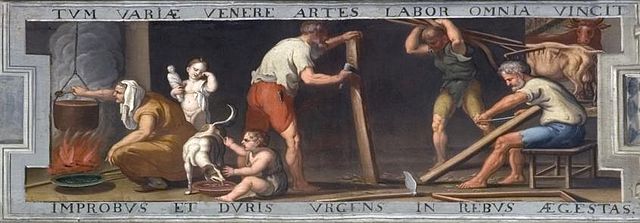In Latin literature, Augustan poetry is the poetry that flourished during the reign of Caesar Augustus as Emperor of Rome, most notably including the works of Virgil, Horace, and Ovid. In English literature, Augustan poetry is a branch of Augustan literature, and refers to the poetry of the 18th century, specifically the first half of the century. The term comes most originally from a term that George I had used for himself. He saw himself as an Augustus. Therefore, the British poets picked up that term as a way of referring to their endeavours, for it fit in another respect: 18th-century English poetry was political, satirical, and marked by the central philosophical problem of whether the individual or society took precedence as the subject of the verse.
Alexander Pope, the single poet who most influenced the Augustan age.
A William Blake illustration for Edward Young's Night Thoughts.
Publius Vergilius Maro, usually called Virgil or Vergil in English, was an ancient Roman poet of the Augustan period. He composed three of the most famous poems in Latin literature: the Eclogues, the Georgics, and the epic Aeneid. A number of minor poems, collected in the Appendix Vergiliana, were attributed to him in ancient times, but modern scholars consider his authorship of these poems to be dubious.
Modern bust of Virgil at the entrance to his crypt in Naples
Page from the beginning of the Eclogues in the 5th-century Vergilius Romanus
Horace, Virgil and Varius at the house of Maecenas, by Charles Jalabert.
Late 17th-century illustration of a passage from the Georgics, by Jerzy Siemiginowski-Eleuter.






